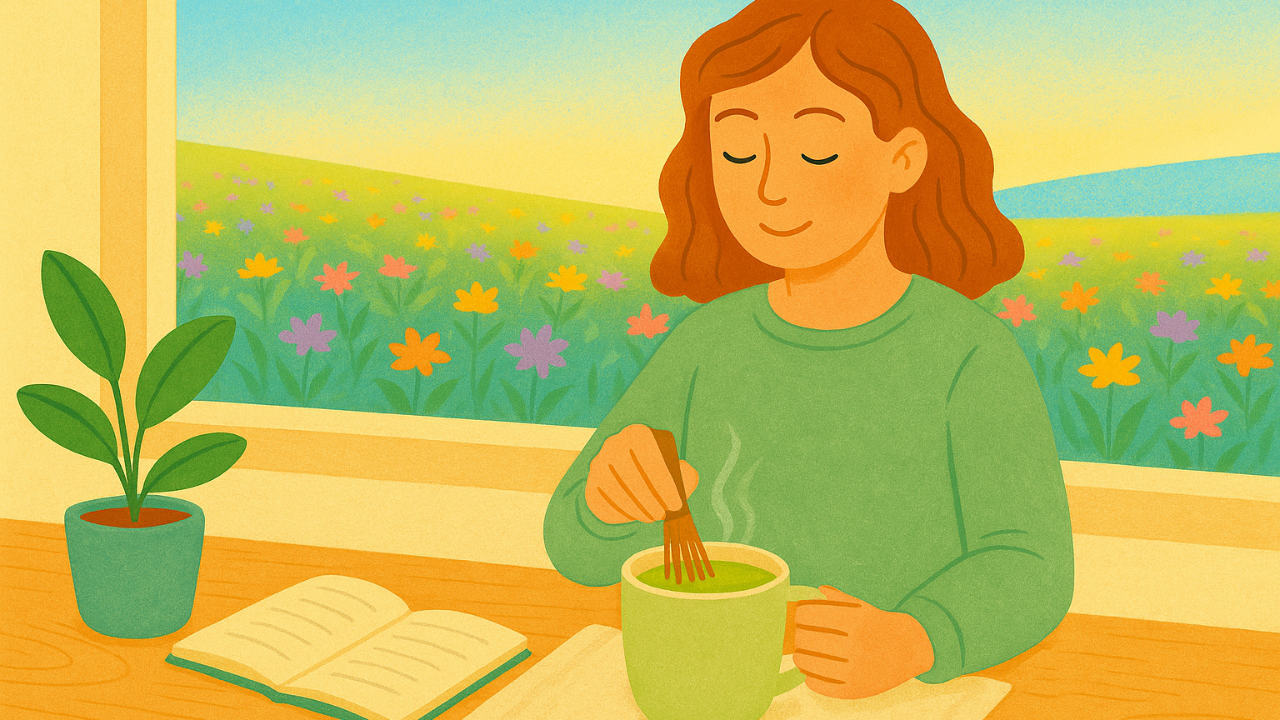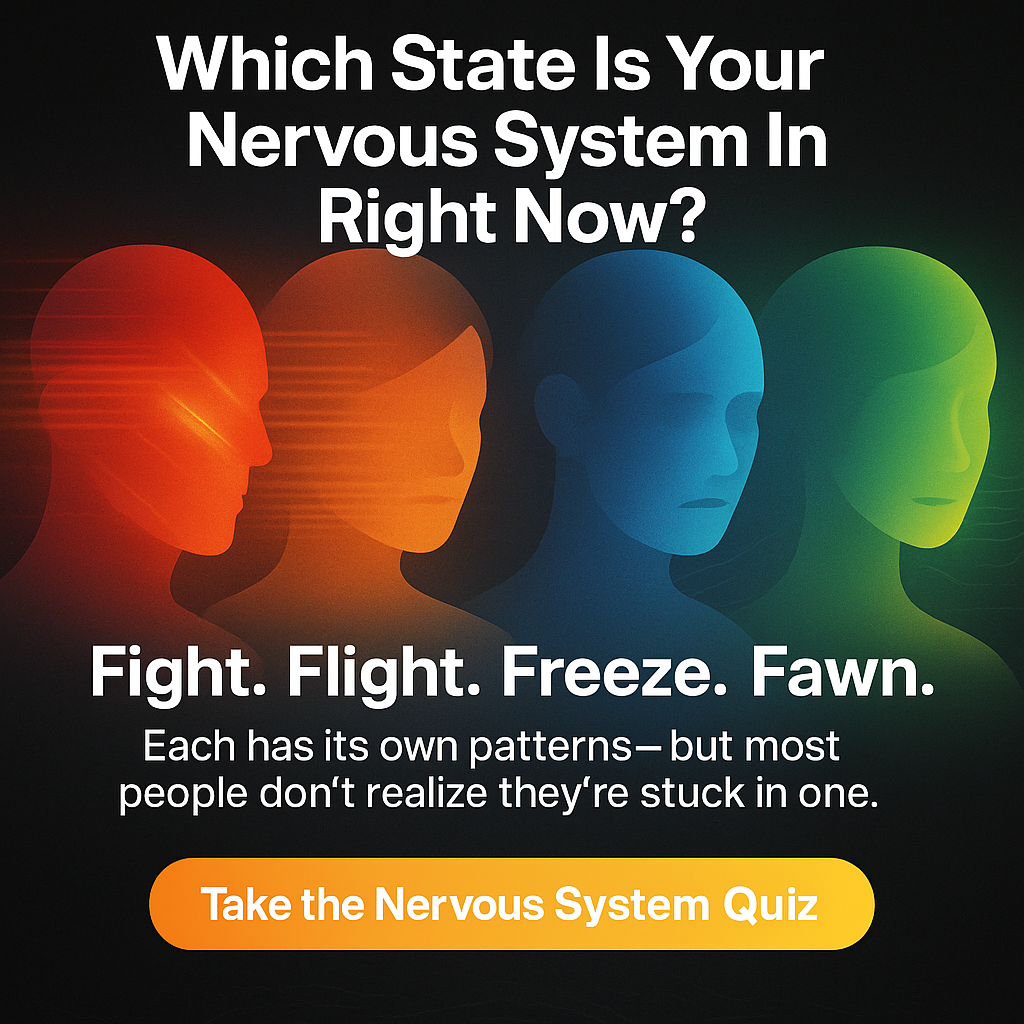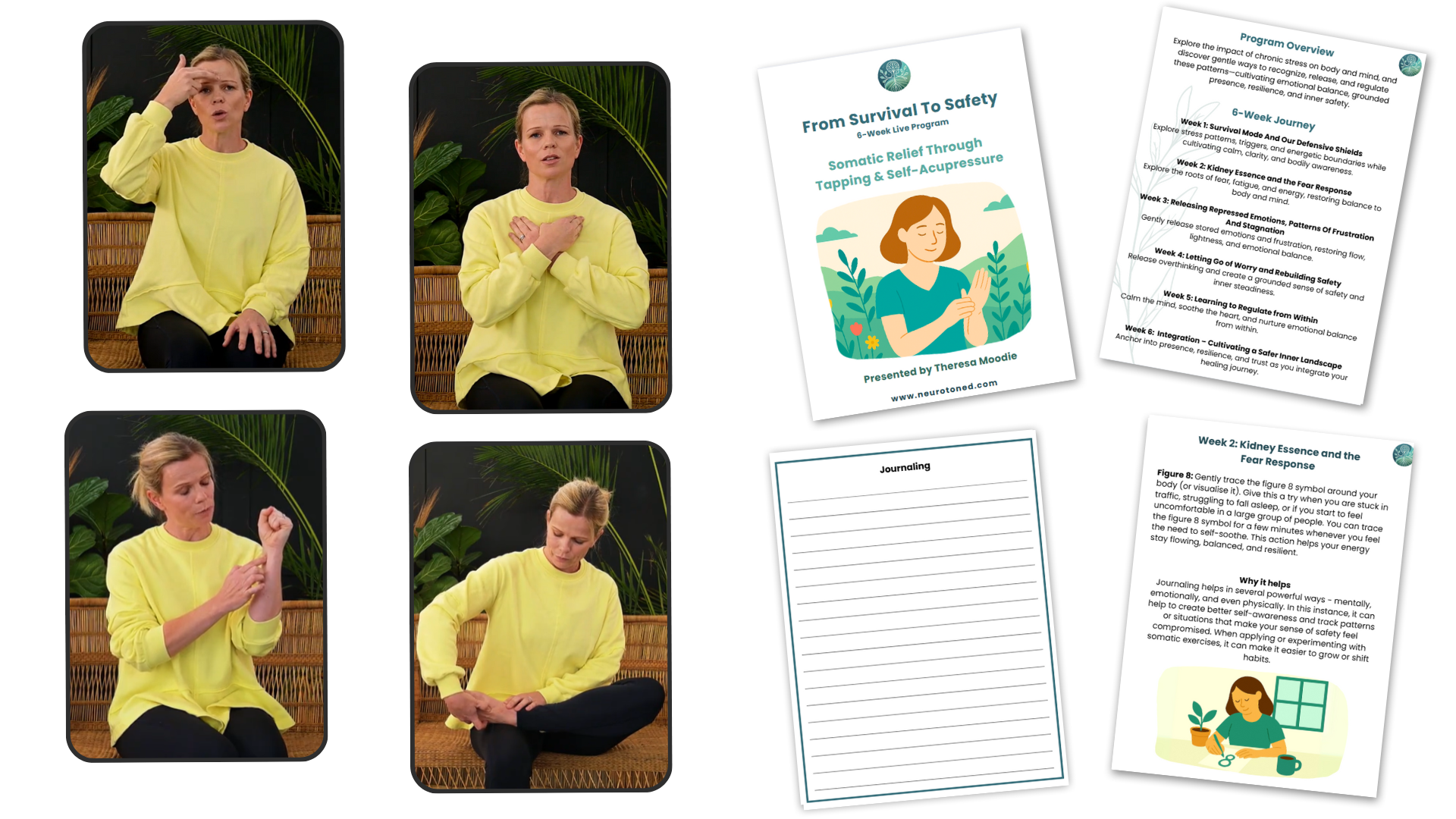
Calming Alternatives to Coffee for Steady Energy
When Coffee Feeds Anxiety
If you love the ritual of morning coffee but hate the racing heart, tight chest, or scattered mind that sometimes follows, you’re not alone. Many sensitive nervous systems react to caffeine as if it were a mini stress signal.
If you’re curious how to stay alert without triggering anxiety, take the Stress Loop Quiz to learn how your body’s stress cycles may be driving that wired-but-tired feeling.
Quick Answer: What Can You Drink Instead of Coffee for Calm Focus?
You can replace coffee with nervous-system-friendly options like matcha, roasted chicory, tulsi tea, cacao, or adaptogenic blends. These options still give a sense of morning warmth and alertness but support steadier energy, balanced cortisol, and less anxiety.
They don’t push the “fight or flight” button like caffeine often does.
Why Coffee Can Feel Like a Stress Trigger
Caffeine raises cortisol and adrenaline, the same hormones your body releases during danger. For a nervous system already holding tension, this can amplify anxiety, restlessness, or that familiar mid-morning crash.
If your hands tremble, your stomach knots, or you get dizzy after coffee, your vagus nerve may already be in a state of overactivation — something Polyvagal Theoryhelps explain gently.
You can learn how to calm this cycle in this 12-minute daily reset.
Calming Coffee Alternatives
1. Matcha Tea
Matcha still contains caffeine but is balanced with L-theanine, an amino acid that promotes calm focus. It releases energy slowly, supporting alertness without a spike or crash. Try whisking it with oat milk and a touch of vanilla.
2. Roasted Chicory Root
Completely caffeine-free, roasted chicory has a deep, coffee-like flavor. It supports digestion and healthy gut bacteria, which are key to the gut-brain connection that influences emotional balance and nervous system stability.
3. Tulsi (Holy Basil) Tea
Tulsi helps modulate cortisol levels and may ease anxious tension. It pairs well with lemon balm or chamomile for a comforting afternoon brew.
4. Cacao or Cocoa
Raw cacao contains gentle stimulants like theobromine that uplift mood without the sharpness of caffeine. Add cinnamon or a pinch of sea salt for grounding warmth.
5. Adaptogenic Blends
Herbs like ashwagandha, maca, and rhodiola help the body respond to stress with more balance. Many people find these support both focus and resilience over time. Learn more about somatic practices that pair well with adaptogens.
How to Transition Away From Coffee
-
Reduce gradually: Swap one cup per day for a caffeine-free alternative.
-
Hydrate: Dehydration worsens withdrawal headaches.
-
Eat before caffeine: Having protein first helps stabilize blood sugar swings, which may reduce anxiety and irritability.
-
Add breathwork: Try this morning nervous system reset to wake up calmly without overstimulation.
7-Day Gentle Energy Reset Plan
Day 1–2: Replace your second coffee with tulsi or chicory tea.
Day 3–4: Add 1 tsp of cacao to warm milk mid-afternoon instead of reaching for caffeine.
Day 5–6: Try matcha in the morning and note how your body feels.
Day 7: Journal which drink gives you focus and ease, not just stimulation.
You can pair this plan with a 10-minute nervous system reset to help your body adjust as caffeine levels drop.
You can also take the Stress Loop Quiz to see where your energy dips and why.
Common Sticking Points
“I get headaches without coffee.”
That’s caffeine withdrawal. Hydrate, and use gentle green tea or matcha as a bridge for a few days.
“I miss the ritual.”
Keep the mug, the steam, the morning stillness. The ritual calms your nervous system more than the caffeine ever did.
“I feel foggy.”
Eat a protein-rich breakfast and do 2 minutes of shaking or stretching to bring blood flow back to your brain. See how somatic shaking clears morning sluggishness.
If you notice “butterflies” in your stomach or mild restlessness, it’s your body signaling stress — a response explored more deeply in this gentle read.
FAQs
1. Why does coffee make me anxious now when it never used to?
Stress and hormone changes can shift caffeine sensitivity. Your body may be asking for gentler stimulation.
2. Is decaf safer for anxiety?
Decaf has less caffeine, but still some. Many people find herbal or cacao blends feel calmer.
3. Are adaptogens safe to take daily?
Most adaptogens are considered safe when used moderately, but always check with your healthcare provider if you take medication.
4. Can I drink matcha every day?
Yes, it’s generally well tolerated. Choose ceremonial-grade for better quality and less bitterness.
5. What time of day is best for calming energy drinks?
Morning or early afternoon. Avoid any caffeine (even mild) after 2 p.m. if you’re sensitive.
6. What if I still crave coffee?
Try a half-caf mix or roasted barley blends. The goal is steadiness, not perfection.
Pair your new morning ritual with a few minutes of vagus nerve breathing to wake your body gently and ground your focus.
More Gentle Reads
Disclaimer: This article is educational and not medical advice. If you have health concerns, consider speaking with a qualified professional.
Discover Your Vagal Tone
Find out how dysregulated your nervous system is and get your personalized roadmap to feeling calm, energized, and in control


